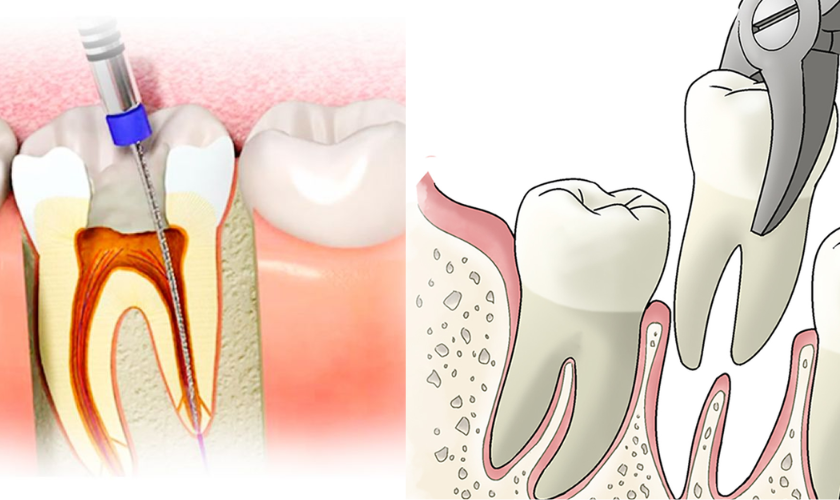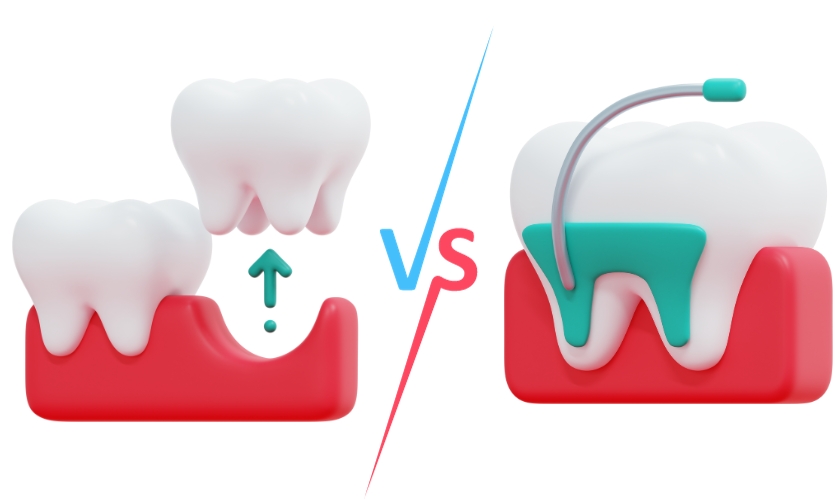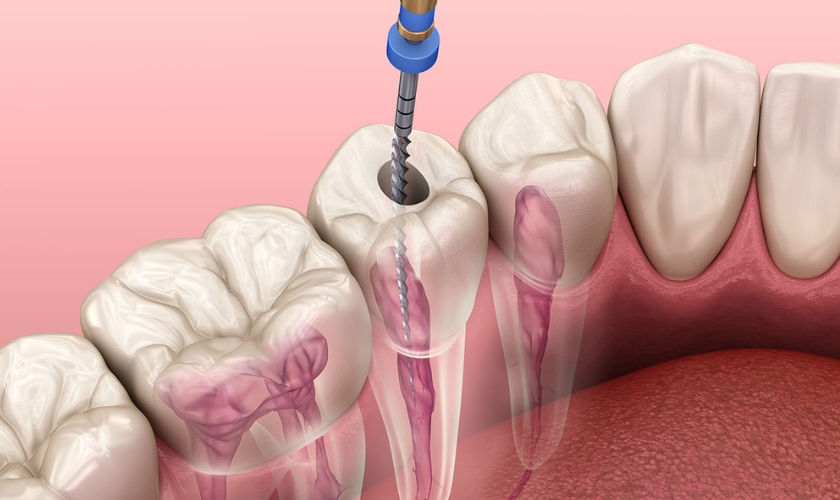Kentwood, MI

Is a Root Canal Right for You? How to Decide If This Treatment is Necessary

Deciding whether to undergo a root canal can be a dental crossroads – a choice laden with questions and concerns. Yet, amidst the myths and apprehensions lies a procedure vital for salvaging your natural smile.
This blog will provide some insights into the significance of root canals, unveiling the truths and dispelling the fears. Stick till the end to discover the importance of this often misunderstood dental intervention. Join us as we navigate through the nuances, empowering you to make an informed choice for your oral health journey.
The Root Canal Basics: What’s It All About
Root canals, or endodontics, often painted with anxiety, are dental superheroes rescuing compromised teeth. When the pulp – the tooth’s inner soft tissue – becomes infected or damaged, a root canal steps in. Contrary to popular belief, it’s not a source of pain but a remedy. Picture it as a meticulous cleaning – removing the infected pulp, cleaning the interior, and sealing it tight. Modern root canal procedures, performed with precision and minimal discomfort, save your natural tooth and relieve you from dental distress.
Signs Pointing You Need Root Canal Treatment
If you notice the following symptoms, know that it’s time to book your endodontic treatment.
Persistent Pain: Unrelenting tooth pain, especially when biting or applying pressure, can signal an infection deep within, necessitating endodontics to alleviate discomfort.
Heightened Sensitivity: Increased sensitivity to hot or cold that lingers well after exposure could indicate nerve damage, a red flag for a potential root canal.
Swelling and Tenderness: Swollen gums or tenderness around a specific tooth may indicate infection. This is where you need endodontic treatment to address the underlying issue.
Darkening or Discoloration: Noticeable changes in tooth color, often a darkening or graying, may point to internal damage, requiring a root canal to restore both aesthetics and health.
Pimple on the Gums: The presence of a pimple-like bump on the gums, known as a dental abscess, signifies infection and often necessitates prompt endodontic intervention to prevent further complications.
Decoding the Decision-Making Process
Understanding whether endodontics is right for you involves considering a few key factors. Your dentist will evaluate the extent of damage or infection, the tooth’s location, and its overall health. Additionally, your own preferences and comfort level will play a role in the decision-making process.
Painless Precision: The Modern Root Canal Experience
Contrary to popular belief, modern endodontics are performed with precision and minimal discomfort. Advanced techniques and anesthesia ensure a painless experience, and many patients report feeling immediate relief after the procedure.
The Importance of Preserving Your Natural Tooth
Opting for root canals is often about preserving your natural tooth, a factor that contributes significantly to oral health. Unlike extraction, which may lead to issues like misalignment, endodontic treatment allows you to maintain the structure and function of your tooth.
Root Canal vs. Extraction: Weighing the Options

When faced with a compromised tooth, the choice between endodontics and extractions is pivotal. While extraction may seem like a quicker fix, it comes with potential long-term consequences. A root canal, on the other hand, aims for a more sustainable solution, allowing you to keep your natural tooth.
What to Expect During An Endodontic Procedure?
If you and your dentist decide endodontics is the way to go, understanding the procedure can alleviate anxiety. The process involves removing the infected pulp, cleaning the interior, and sealing the tooth. Subsequently, a crown is often placed to restore the tooth’s strength and appearance.
The Aftermath: Recovery and Care Tips
Post-root canal care is essential for a smooth recovery. While some discomfort is normal initially, it is short-lived. Your dentist will provide care instructions, which typically include practicing good oral hygiene, avoiding hard foods, and attending follow-up appointments.
Consulting Your Dentist: The First Step to Clarity
Deciding if endodontic treatment is right for you is a decision best made in consultation with your dentist in Kentwood. They will assess your unique situation, discuss the options, and guide you toward the most suitable choice for your oral health.
The decision to undergo a root canal is not one to be taken lightly, but understanding its importance and debunking common misconceptions can empower you to make an informed choice. Remember, your natural tooth is an invaluable asset, and endodontics is the key to preserving it for years to come.






